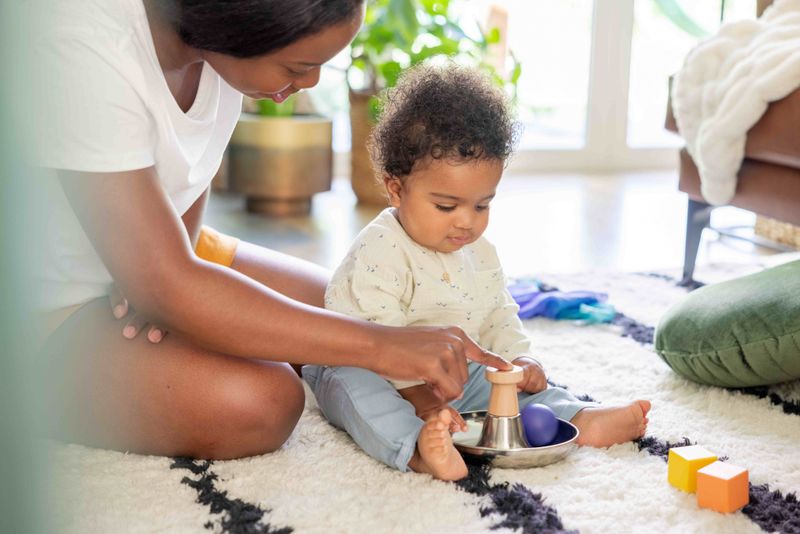19 Common Mistakes Every First-Time Parent Makes

Becoming a parent for the first time is both thrilling and overwhelming. While every new parent wants to do their best, it’s easy to stumble. Mistakes are simply part of the learning process, and they’re often made out of love and inexperience.
This blog post highlights 19 common mistakes first-time parents make, each accompanied by friendly advice to guide you through. Remember, you’re not alone, and every parent has been there.
Embrace the journey of learning, and know that perfect parenting doesn’t exist—only your best effort does. Dive into these insights with an open mind and know that every step forward is a step toward becoming the parent you aspire to be.
1. Worrying about doing everything “right”

The first-time parent often feels the weight of doing everything perfectly. Parents might find themselves constantly questioning their decisions and choices. This pressure can be overwhelming, leading to unnecessary stress.
Remember, no one has all the answers, and parenting is a journey of trial and error. Embrace mistakes as learning opportunities, and trust that love and patience guide you in the right direction.
Let go of the pursuit of perfection and focus on what’s best for your child. In this journey, intent and effort mean more than flawless execution. Cut yourself some slack and relish the little victories.
2. Comparing your child to others constantly

As a parent, it’s natural to notice differences between your child and others, but constant comparison can be harmful. It creates unnecessary worry and may overshadow your child’s unique qualities.
Instead, celebrate your child’s individuality and progress at their own pace. Recognize that each child develops differently, and these variations make them special.
Focus on your child’s strengths and encourage their growth without the pressure of comparisons. Remember, parenting isn’t a race, and each child’s journey is distinct and beautiful in its own way.
3. Googling every small symptom

The internet is a double-edged sword for new parents. It offers a wealth of information, but it can also lead to unnecessary anxiety. Googling every cough or rash can result in confusion and fear.
Instead, seek advice from trusted pediatricians and healthcare providers. They offer personalized guidance and reassurance, helping you understand what’s normal and what might require attention.
Utilize online resources wisely, but prioritize professional opinions. Building a relationship with your child’s doctor adds peace of mind and helps you navigate health concerns confidently.
4. Ignoring your own needs

In the whirlwind of caring for a newborn, parents often neglect their own well-being. This self-sacrifice is typical, but it can lead to burnout and affect the entire family.
Remember that self-care is crucial, not selfish. Taking time for yourself recharges your energy and helps you be a more effective parent.
Make small, manageable efforts to fulfill your needs, whether it’s a quiet moment with a book or a walk outside. Prioritizing your health and happiness benefits both you and your child.
5. Feeling guilty for wanting a break

Parental guilt can be overwhelming, especially when you crave a moment alone. Society often romanticizes constant sacrifice, which leads many to feel guilty for needing a break.
Acknowledging your need for rest and relaxation is healthy. It doesn’t reflect a lack of love or dedication, but rather a desire to recharge and maintain balance.
Allow yourself this time without guilt, knowing it benefits your family. A well-rested parent is more present and engaged, ready to embrace the joys and challenges of parenting.
6. Overreacting to every cry

Every cry can feel urgent to a new parent, causing immediate alarm. While responding promptly is important, not every cry is a crisis.
Babies cry to communicate and it can mean many things, from hunger to discomfort or simply needing comfort. Learning to interpret these cries helps reduce stress.
Respond with care but also with understanding of what your baby might need. Over time, you’ll recognize patterns and feel more at ease, knowing not every cry indicates a problem.
7. Letting unsolicited advice shake your confidence

Advice floods in from every direction when you’re a new parent. While much of it comes from a place of love, it can be overwhelming and conflicting.
Trust your instincts and remember that you know your child best. Filter advice through the lens of your own values and parenting style.
It’s okay to graciously accept advice while quietly choosing what truly resonates with you. Confidence grows as you make decisions aligned with your beliefs and your child’s needs.
8. Believing bonding must be instant

Not every parent feels an immediate bond with their newborn, and that’s okay. Bonding is a process that can take time and grows through shared experiences and daily care.
Don’t pressure yourself to feel a certain way; these emotions develop naturally as you get to know your baby. Every coo, smile, and cuddle strengthens the connection.
Focus on being present and nurturing, knowing that the bond will deepen as you both grow together. It’s a journey filled with beautiful moments and discoveries.
9. Underestimating how tired you’ll be

Parenting exhaustion is real, and many underestimate its impact. Sleep deprivation affects mood, health, and emotions, making even simple tasks seem monumental.
Know that fatigue is normal and temporary. Prioritize rest whenever possible and seek help from loved ones to share the load.
Create a sleep schedule that includes naps and early bedtimes. The rejuvenation from rest aids patience and positivity, essential for thriving in your parental role.
10. Not asking for help early enough

Many first-time parents feel they must manage everything alone, viewing help as a sign of inadequacy. This mindset, however, leads to unnecessary stress and exhaustion.
Recognize that seeking support is a strength. Family and friends are often eager to assist, and professional resources offer valuable guidance.
Reaching out for help lightens your load and enriches your parenting experience. It fosters community, provides relief, and enhances your confidence in navigating this new territory.
11. Thinking routines must be perfect from day one

Creating a routine offers stability, but expecting perfection from the start is unrealistic. Babies are unpredictable, and rigid plans can lead to frustration.
Flexibility is key. Allow routines to develop naturally, adapting to your child’s needs and cues. This approach reduces stress and fosters a harmonious environment.
Celebrate small victories and remember that routines evolve. It’s the consistency and love within daily interactions that shape your child’s sense of security and well-being.
12. Taking every tantrum personally

Tantrums are a normal part of child development, yet they often feel like personal failures. It’s easy to question your parenting skills, but tantrums are simply expressions of overwhelming emotions.
Maintain composure and empathy, recognizing that your child is learning to navigate their feelings. Guide them with patience, setting clear boundaries and offering comfort.
Viewing tantrums as opportunities for growth shifts the focus from frustration to teaching moments. Your calm presence teaches emotional resilience and understanding.
13. Trying to be the “fun parent” all the time

Desiring to be the “fun parent” is common, but constantly striving for this can be exhausting. Balance between fun and essential boundaries is key.
Children thrive with both play and structure. Being present and engaged is more valuable than constant entertainment.
Share joyful moments while also providing guidance and discipline. This balance nurtures a healthy, happy environment where your child feels safe and loved.
14. Doubting your instincts too often

Second-guessing yourself is common, but your instincts as a parent are powerful. They arise from a deep understanding and connection with your child.
Trust in your ability to know what’s best. Experience enhances your instincts, and confidence grows as you navigate challenges.
Listen to your inner voice, supported by knowledge and love, and make decisions that resonate with your family’s unique dynamic. Trusting yourself fosters a nurturing environment for both you and your child.
15. Feeling like you have to enjoy every moment

Not every parenting moment is joyful, and expecting constant happiness is unrealistic. Parenthood is filled with a mix of emotions, and it’s okay to feel overwhelmed.
Allow yourself to experience the full range of feelings without guilt. Acknowledge challenging moments as part of the journey.
Cherish the joyful times, but understand that it’s normal to feel stress, fatigue, and frustration. Embrace the imperfect beauty of parenthood, knowing each phase is temporary and precious.
16. Expecting the relationship with your partner to stay the same

Having a child changes the dynamic between partners, introducing new challenges and joys. Expecting the relationship to remain unchanged can lead to disappointment.
Embrace change with open communication, recognizing the shifts in priorities and responsibilities. Support each other through the transition.
Celebrate small moments together and nurture your connection amidst parenthood. A strong partnership enriches family life and provides a loving foundation for your child.
17. Rushing milestones

The excitement of milestones can lead to impatience, pushing for progress before your child is ready. Each child develops at their own pace, and rushing can create undue stress.
Celebrate each achievement as it comes, recognizing the uniqueness of your child’s journey. Provide support and encouragement without pressure.
Enjoy the present moments, knowing growth unfolds naturally. Relish the delight of watching your child develop in their own time, in their own way.
18. Believing you’re the only one struggling

Parenting can feel isolating, leading many to believe they’re alone in their struggles. Yet, every parent encounters challenges and doubts.
Connecting with others reveals shared experiences and offers reassurance. Parenting communities provide support, understanding, and camaraderie.
Seeking connection reminds you that you’re not alone. Together, parents share wisdom, encouragement, and laughter, lightening the load and enhancing your parenting journey.
19. Forgetting that “good enough” is still really good

The quest for perfection often overshadows the joy of “good enough.” Striving for an unattainable ideal creates stress and dissatisfaction.
Embrace the reality that good enough is truly valuable. It’s the love, care, and presence you provide that matters most.
Relinquish the pursuit of perfection and celebrate the meaningful moments you create with your child. Contentment lies in knowing your efforts are enough, creating a nurturing and joyful environment.
